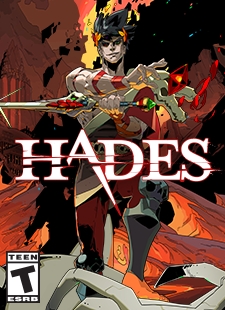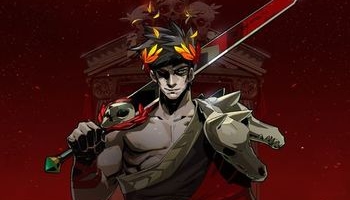 The Hugo Awards are arguably the most prestigious prize in the science fiction and fantasy community, but it took until 2021 for the members of Worldcon (AKA the World Science Fiction Society) to finally recognize video games with an award of their own.
The Hugo Awards are arguably the most prestigious prize in the science fiction and fantasy community, but it took until 2021 for the members of Worldcon (AKA the World Science Fiction Society) to finally recognize video games with an award of their own.
In this edition of Bite-Sized Game History, we’ll look at the Hugo’s first foray into video games, as well as another example of gaming’s lax recognition of copyright law, and say goodbye to the man who defined how football was meant to be played as a video game.
![]() You can find a lot of dedicated video game historians on Twitter, and in 280 characters or less, they always manage to unearth some amazing artifacts. Bite-Sized Game History aims to collect some of the best stuff I find on the social media platform.
You can find a lot of dedicated video game historians on Twitter, and in 280 characters or less, they always manage to unearth some amazing artifacts. Bite-Sized Game History aims to collect some of the best stuff I find on the social media platform.
Thanks to titles like Spacewar!, Final Fantasy, Halo, and many others, the twin fandoms of video games and SF&F have overlapped for decades. So why did it take so long for the Hugo Awards to finally create a “Best Video Game” category?
“Best Video Game” was added to last year’s Hugo Awards ceremony at DisCon III as a special one-off category, and Supergiant Games’s Hades won the inaugural award. It prevailed over five other nominees for “Best Video Game,” including Nintendo’s Animal Crossing: New Horizons, The Game Band’s Blaseball, Square Enix’s Final Fantasy VII Remake, Naughty Dog’s The Last of Us: Part II, and Thunder Lotus’s Spiritfarer.
Congratulations to the team, and Creative Director Greg Kasavin, who delivered a pre-taped acceptance speech via Twitter. Hopefully there’s continued support to bring the “Best Video Game” category back in the future:
Wish I could have attended the #HugoAwards in person. I wasn't able to make an acceptance speech there on behalf of the team though did have a few words here. I'm grateful that the awards are recognizing work in this category, much less the work we did! pic.twitter.com/S9bfSp1i8H
— Greg Kasavin (@kasavin) December 19, 2021
J.R.R. Tolkien never won a Hugo Award, but his writing has inspired countless new stories in the fantasy genre and more than a few video games. Not content to take inspiration from a previously-published work, many game developers in the 1980s and 1990s were more than happy to borrow copyrighted characters for their games without securing the rights. Just look at this example from Shining in the Darkness from Kurt Kalata’s A Guide to Japanese Role-Playing Games.
When creating the co-protagonist, Sega borrowed (or rather, stole) a page from Tolkien and said he was a hobbit named Bilbo.
The character’s name was changed to Milo for the game’s launch in the US and Europe, but believe it or not, due to a quirk in US Copyright Law, The Lord of the Rings was actually in the public domain from 1954 through 1996, so it was legally murkier than you’d think:
In the Japanese version of Shining in the Darkness, the priest Milo is straight up a hobbit named Bilbo, which probably wouldn't have passed legal muster in the English version pic.twitter.com/ojII7Aoh70
— JRPG Book (@JRPGBook) December 27, 2021
Finally, we need to say goodbye to John Madden, who passed away a few weeks ago at the age of 85. Madden hadn’t been directly involved with the development of his namesake football franchise since 2008, but he continued offering advice and suggestions to the team at EA Tiburon right up until his death, and his love for the sport will always be part of the game.
Madden wasn’t too familiar with video games when Electronic Arts approached him to serve as the spokesman for their first football simulation in 1984. But he went for it, and even said that if the game was going to have his name on it, it had to be as close to the real thing as possible. Putting 11 players on each side was an impossibility for the computers of the time, and the game would ultimately take years to complete. But the developers were able to pull it off and John Madden Football was born in 1988.
Everyone who met him had a John Madden story, and sportswriter Arash Markazi shared this great one about Madden’s feelings about doing the commentary each year for the game:
RIP John Madden. One of the greatest answers to a question I’ve ever asked came when I asked Madden if he enjoyed doing the commentary for the Madden NFL video game franchise. I was always amazed he had recorded every possible scenario in the game. Legend. https://t.co/ZNZZGYQzUk pic.twitter.com/G8e73utyFv
— Arash Markazi (@ArashMarkazi) December 29, 2021
Thanks to Greg Kasavin, Kurt Kalata, and Arash Markazi for providing the posts that formed this edition of Bite-Sized Game History. If you like, you can follow me on Twitter for more side dishes from game history, perfect for serving with a Madden-sized turducken.

